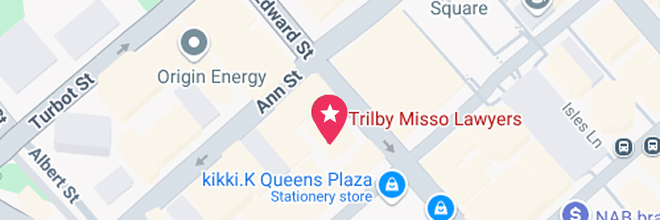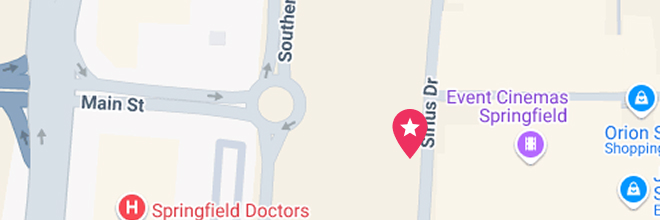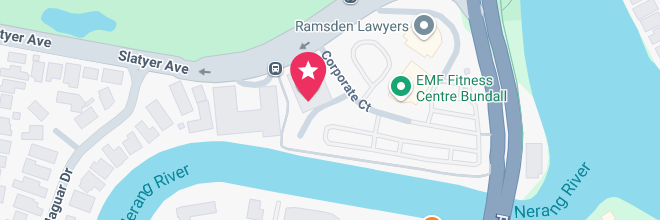Table of Contents
- Trilby Misso: A capable personal injury lawyer in Gympie
- Why choose Trilby Misso as your personal injury lawyer in Gympie?
- Gympie’s key features
- Gympie’s demographics
- Gympie’s historical background
- Gympie’s key attractions
- Gympie’s micro-economy
- Education and healthcare in Gympie
- Links for further reading
Visit Our Gympie Office
- 232 Mary Street, Gympie QLD 4570
- Monday-Friday 8:30am to 5pm
- (07) 5209 6200
 Gympie’s key features
Gympie’s key features
Gympie is a regional town located about 170 kilometres north of Brisbane, sitting within the Wide Bay-Burnett region. It’s known as the “Town that Saved Queensland” due to the discovery of gold in 1867, which helped rescue the state’s economy. Geographically, Gympie is positioned on the banks of the Mary River, a significant feature that winds through the region, providing vital water resources and contributing to the town’s fertile soils.
The Mary River is one of Gympie’s most important natural landmarks, stretching over 300 kilometres. It supports a variety of wildlife and ecosystems and is prone to seasonal flooding, which has historically impacted the town. Gympie is also close to the Great Sandy National Park, home to coastal sand dunes, rainforests, and a variety of wildlife. Other notable natural landmarks include the Amamoor State Forest, a popular spot for camping and hiking, and home to the Gympie Music Muster, a renowned annual music festival.
Gympie enjoys a humid subtropical climate, with warm to hot summers and mild winters. Summer temperatures average between 20°C and 30°C, while winter temperatures range from 10°C to 20°C. The town receives an average annual rainfall of around 1,100 millimetres, with most of the rain falling between December and March. This climate supports rich agricultural production in the surrounding areas, including dairy farming, fruit growing, and grazing.
The region’s diverse natural landscapes and mild climate make it a popular location for outdoor activities, including bushwalking, bird watching, and fishing. Gympie’s geographical features provide not only natural beauty but also an important backdrop for the community’s economy and recreational activities.
 Gympie’s demographics
Gympie’s demographics
Gympie has a population of approximately 21,000 people, based on the most recent census data. As a regional town, it serves as a hub for the surrounding rural areas, which boosts its population and services beyond the town itself. The population growth in Gympie has been relatively steady, driven by its appeal as a quieter, more affordable alternative to the busier coastal areas of Queensland, such as the Sunshine Coast.
In terms of cultural diversity, Gympie is predominantly home to people of Australian and European descent. The majority of the population identifies as having Anglo-Celtic ancestry, including English, Irish, and Scottish heritage. The Indigenous population represents around 4% of the community, reflecting the ongoing presence and contributions of Aboriginal and Torres Strait Islander peoples. Although Gympie is not as culturally diverse as major metropolitan areas, it is gradually becoming more multicultural, with a small but growing number of residents from various international backgrounds.
Community life in Gympie centres around its strong rural roots, with many residents involved in agriculture, trades, and services that support the surrounding farmlands. The town has a reputation for its welcoming and close-knit community, with many family-owned businesses and local traditions.
 Gympie’s historical background
Gympie’s historical background
Gympie has a rich history shaped by both its Indigenous heritage and its role in the gold mining era. Before European settlement, the Gympie region was home to the Kabi Kabi (Gubbi Gubbi) people, who have lived in the area for thousands of years. They maintained a deep connection to the land, with their culture and livelihoods centred around the local rivers, forests, and abundant natural resources.
European settlement in the Gympie region began in the 1840s, mainly for cattle grazing. However, it was the discovery of gold in 1867 by prospector James Nash that dramatically changed the town’s course. Gympie quickly earned the nickname “The Town that Saved Queensland” because the gold found here helped pull Queensland out of a severe economic depression. This gold rush spurred rapid development and attracted settlers, prospectors, and businesses, leading to the establishment of essential infrastructure such as roads, schools, and civic buildings.
As the gold reserves gradually depleted, the town shifted its economic focus to agriculture, especially dairy farming and timber. The fertile lands surrounding Gympie supported this transition, and the region became known for producing high-quality agricultural goods. By the early 20th century, Gympie had evolved into a service centre for the surrounding rural communities, providing essential goods and services.
 Gympie’s key attractions
Gympie’s key attractions
One of the town’s main tourist spots is the Gympie Gold Mining and Historical Museum, which provides insight into the region’s gold mining past and its role in shaping the town. Visitors can explore the museum’s extensive collection of historical artefacts, machinery, and buildings that reflect the mining era.
For those who enjoy outdoor activities, Amamoor State Forest and National Park are popular destinations. The park is known for its scenic walking tracks, picnic areas, and wildlife, making it ideal for hiking, birdwatching, and camping. The area also hosts the annual Gympie Music Muster, a large country music festival that draws thousands of visitors each year. Another popular outdoor attraction is Lake Alford Park, a picturesque spot with walking paths, picnic areas, and a duck pond, perfect for family outings.
Gympie also boasts several cultural and recreational centres. The Gympie Regional Gallery showcases local art and crafts, offering a variety of exhibitions and workshops throughout the year. For history enthusiasts, WoodWorks Museum highlights the timber industry’s history in the region, with hands-on exhibits and demonstrations of traditional timber-working techniques.
The Mary Valley Rattler, a restored heritage steam train, offers a scenic ride through the picturesque Mary Valley, making it a family-friendly activity that appeals to both children and adults. Additionally, shopping and farmers’ markets in Gympie provide opportunities to explore local products, arts, and crafts. The town’s goldfield tours, held periodically, allow visitors to experience panning for gold and learn more about the area’s historical roots.
 Gympie’s micro-economy
Gympie’s micro-economy
Gympie’s economy is primarily based on agriculture, retail, and tourism, with a growing emphasis on small-scale manufacturing and services. Historically, the town’s economic foundation was built on gold mining, but as those resources depleted, Gympie transitioned into an agricultural hub. Today, the region is known for its dairy farming, cattle grazing, and fruit production, particularly macadamia nuts and citrus fruits. Agriculture continues to be a significant employer in the region, with many farms supplying both local and export markets.
The retail and service sectors also play a crucial role in Gympie’s economy. The town acts as a commercial centre for the surrounding rural areas, offering essential services such as healthcare, education, and retail to a broader population than just the town itself. Major retailers have a presence in Gympie, but the town also supports a vibrant community of local businesses and entrepreneurs. Small businesses in areas such as food production, hospitality, and arts and crafts contribute to the local economy and provide employment opportunities.
In recent years, Gympie has seen economic growth through tourism and infrastructure development. The town’s rich history, combined with its scenic natural environment, attracts visitors interested in cultural and outdoor activities. Attractions like the Gympie Music Muster, Mary Valley Rattler, and national parks bring in tourists, supporting the hospitality industry and boosting local businesses.
Entrepreneurship in Gympie is gaining momentum, with initiatives encouraging local startups and small business development. The local government and chambers of commerce have been active in promoting business growth and investment, offering support for innovation and regional development. As the town continues to diversify its economy, there is potential for growth in sectors such as eco-tourism, renewable energy, and agribusiness, all of which could create new jobs and opportunities for the community.
 Education and healthcare in Gympie
Education and healthcare in Gympie
Gympie offers a range of educational and healthcare facilities that serve both the town’s residents and the surrounding rural communities. In terms of education, Gympie has several primary and secondary schools, catering to both public and private sectors. Gympie State High School, established in 1912, is one of the oldest and most well-known secondary schools in the area. Other secondary schools include James Nash State High School and private institutions such as St Patrick’s College and Cooloola Christian College, offering diverse curricula and extracurricular activities.
For primary education, there are multiple public schools such as Gympie Central State School and Jones Hill State School, along with private options including Victory College. Vocational training and higher education are also available in the region through institutions like TAFE Queensland East Coast. TAFE offers various courses focused on practical skills in areas such as trades, health, and business, providing pathways to employment for local students. For those seeking higher education, the University of the Sunshine Coast (USC) has a nearby campus in the Fraser Coast region, making it accessible for Gympie residents.
Gympie’s healthcare system is well-developed for a regional town, with the Gympie Hospital serving as the primary medical facility. Operated by Queensland Health, the hospital provides emergency services, inpatient care, and a range of specialist services, including maternity and rehabilitation. Additionally, Cooloola Coast General Practice and several other local clinics provide general healthcare services, ensuring residents have access to primary care and specialist referrals. There are also several pharmacies and allied health providers, such as physiotherapists and mental health professionals, supporting the community.
Here’s how our ‘no win no fee’ process works:
-
We chat
 It’s a free consultation.
It’s a free consultation. -
We meet
 A free detailed discussion.
A free detailed discussion. -
We plan
 You say ‘go’ – we build your case.
You say ‘go’ – we build your case. -
We lodge
 We present
We present
your case. -
We conclude
 We reach a settlement.
We reach a settlement.
You pay nothing until you win
We’ll also provide certainty and clarity, with a fair structure that has no ‘uplift’ fee, ever. You’ll pay nothing ‘til your claim is won.
Don’t delay. Speak with Trilby Misso today.
Your next step is a small one. All you need to do is give us a call on 1300 731 671 or complete this form here to arrange a quick chat.
During this initial conversation, we will:
- Have a chat about the circumstances and nature of your injury.
- Give you an indication of your eligibility to make a claim for compensation.
- Explain, in simple terms, how our process works. We will answer
any questions you have about fees, the legal process, and anything else you’re unsure about relating to your injury.
We understand that taking legal action can be stressful, and we’ll do all we can to ease your concerns.
The chat can take place at our place, your place, or by phone. There is no cost, no pressure, and no obligation.

Call 1300 731 671 or fill out this form, and we’ll get back to you within 2 hours (during business hours). We look forward to meeting you.






